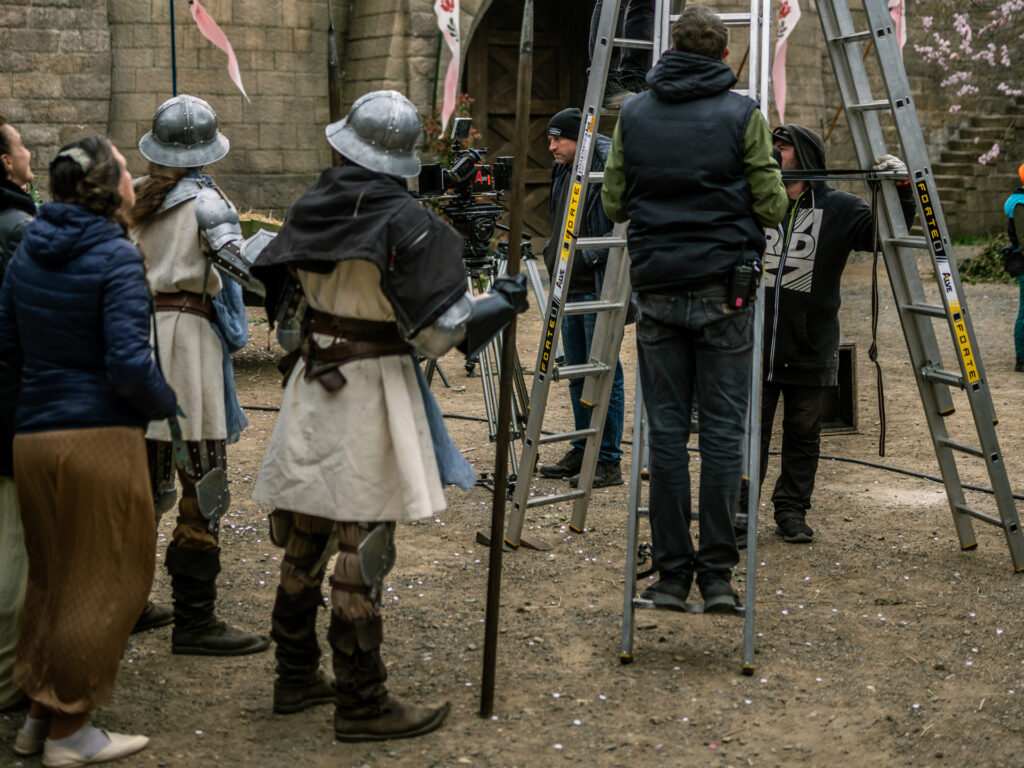Behind every great film is a well-coordinated production process that shapes creative ideas into a successful final product. Film production is more than just organisation—it’s the engine that drives every stage of filmmaking, ensuring that vision and practicality align to create something extraordinary.
Why Production Matters in Filmmaking
Production serves as the glue that holds a film project together. From managing schedules and budgets to coordinating teams, it keeps every element moving smoothly. Without it, even the most inspired scripts and talented crews would struggle to bring a film to life on time and within budget.
The Five Stages of Film Production
Film production unfolds in five distinct stages, each contributing to the creation of a film. These stages ensure that the filmmaking process runs smoothly and efficiently, no matter the scale of the project.
1. Development
In the development stage, ideas transform into a tangible concept. This phase involves brainstorming, writing an initial script, and securing funding, which means building a compelling story and establishing a clear vision for the film. Complete planning during development sets the stage for success in later phases.
2. Pre-Production
Pre-production is where the logistics take shape. Producers work closely with directors and department heads to plan every aspect of the film, from location scouting and hiring crew to scheduling and budgeting. During this stage, the production team ensures that everything aligns with the director’s creative vision.
Key tasks include:
- Casting actors
- Hiring crew
- Securing filming locations and permits
- Organising equipment and props
3. Production
The production phase is when cameras start rolling, and the movie begins to take shape. It’s a high-energy stage where cast and crew collaborate to execute the planned shots. The producer plays a critical role in ensuring everything runs according to schedule while troubleshooting any unforeseen challenges. Production teams must stay alert and ready to adjust as issues arise, from last-minute weather changes to technical glitches.
4. Post-Production
Post-production is where the raw footage evolves into the final film. Editors work with directors to piece together scenes, add sound effects, and integrate visual effects. Colour correction and sound mixing ensure the film achieves its intended aesthetic and emotional impact.
5. Distribution
Distribution is the final stage, ensuring the film reaches its intended audience. This includes marketing, submitting the film to festivals, and negotiating deals with distributors. Some production companies partner with specialised firms to handle promotion and release logistics. A well-executed distribution plan can make or break a film’s success, helping it gain visibility and recognition on a global scale.
How Prague Film Institute Prepares Aspiring Producers
At Prague Film Institute, students receive hands-on training in every stage of production. Our curriculum is designed to provide real-world experience, allowing students to work on professional-grade projects under the guidance of industry mentors.
Students gain skills in project management, budgeting, and on-set problem-solving, preparing them to excel in the competitive film industry.
Will You Step Into Film Production?
Whether you’re passionate about storytelling or logistics, production offers endless opportunities to bring your creativity to life. Explore the comprehensive training programmes at Prague Film Institute and take the first step towards becoming a skilled producer.




